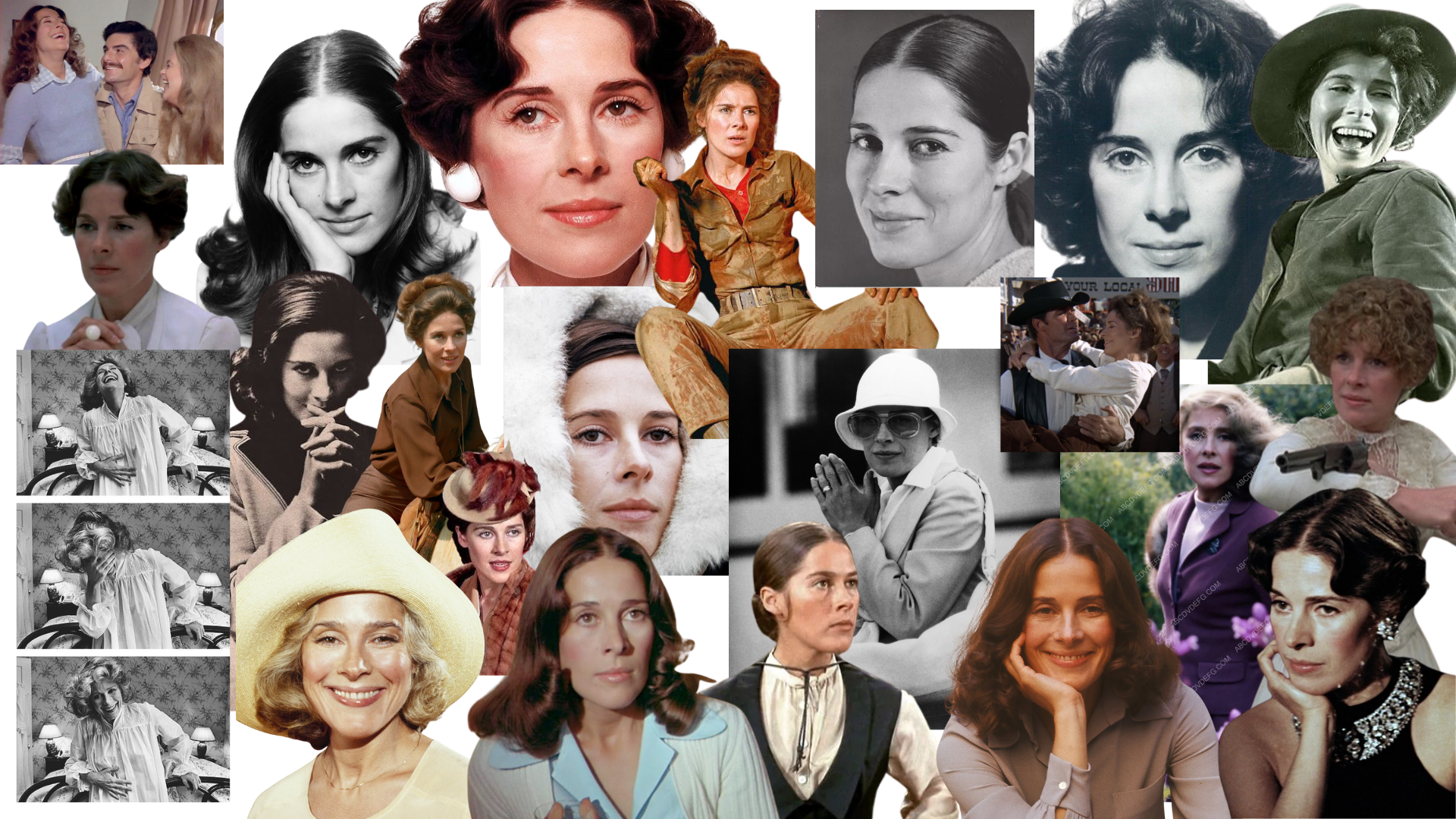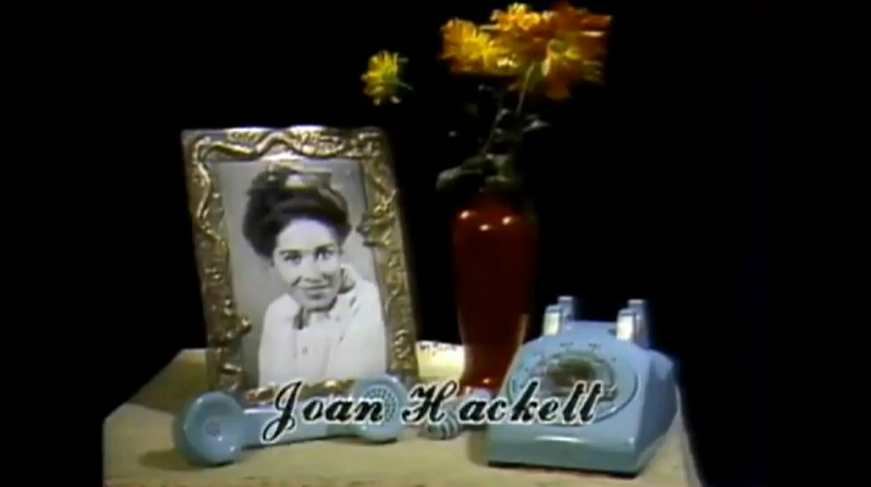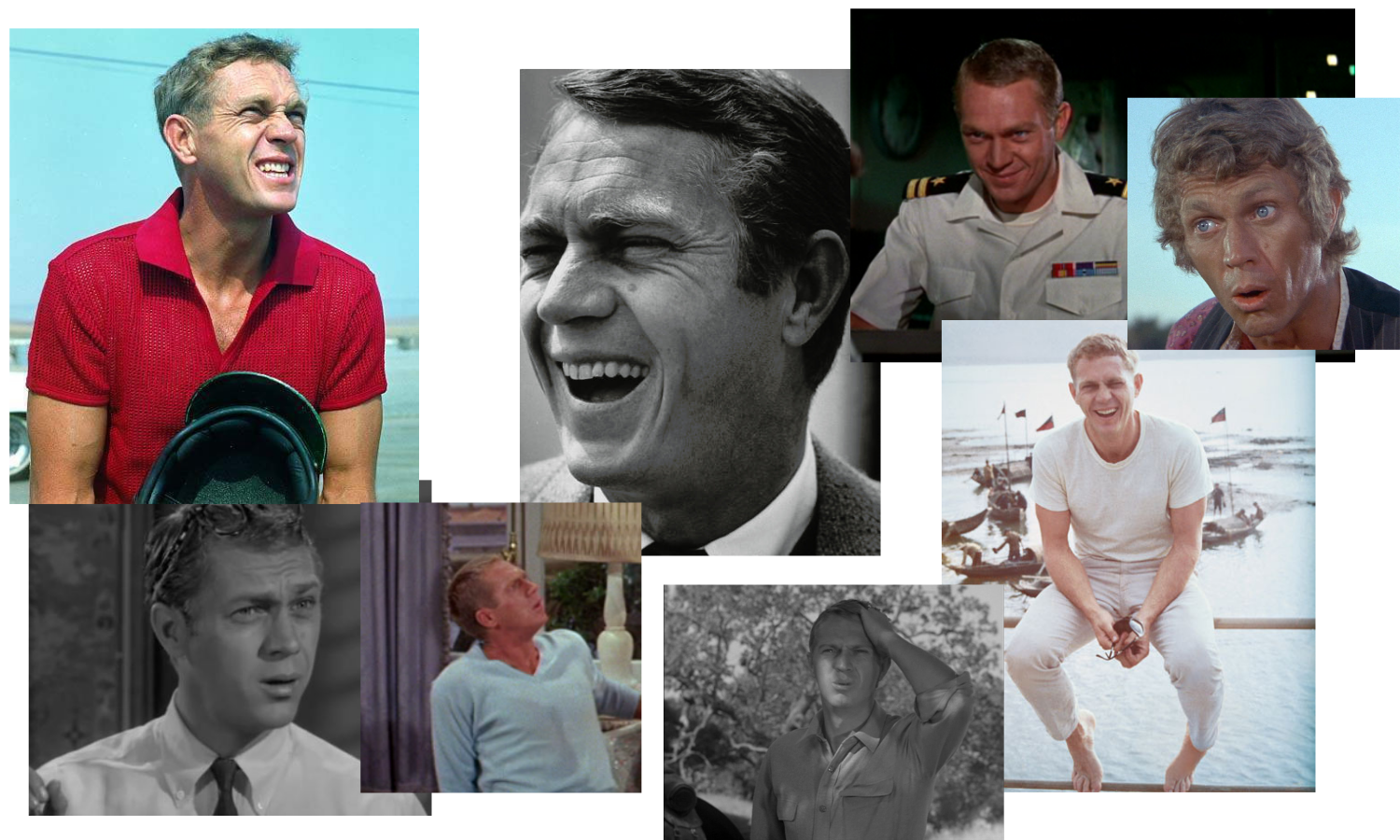The Year of Joan Hackett
I love Joan Hackett. She was a singular actor. I embarked on the Year of Joan Hackett in a bid to complete her filmography.
I love Joan Hackett. She was a singular actor. Onscreen, she had the best and the biggest energy. She was sweet and savory. She was inimitable. She had an instantly recognizable voice and the hair of a turn of the century Gibson Girl. She could make you cackle with laughter or break your heart into tiny splinters. She was explosive and tender. She was overwhelming and gentle. Like the best of our immortalized actors, watching her onscreen is like spending time with a dear old friend.
In January, I was watching her in The Last of Sheila (1973) for the first time (I know! I know! A film made entirely for me that I somehow had not seen age fifteen late on a Friday night with a library DVD). I was thinking about how much I adore her work, and how much I actually hadn’t seen of her short career.
I embarked on the Year of Joan Hackett in a bid to complete her filmography. This is something I successfully did in 2023 with Sandra Dee (and never got around to writing about, naturally), and attempted and failed in 2024 with Audrey Hepburn (so close; I will circle back around to the Lady Hepburn). I am using Letterboxd’s version of her filmography (via TMDb) as it limits her work to feature films and television movies: 31 titles versus the 69 credits on IMDb (this still leaves me so many delicious 1960s and 1970s TV episodes to enjoy at my leisure).
The dark winter months were very successful and I watched many new-to-me Hacketts. I have admittedly fallen off since the summer, but, as the days grow shorter, my appetite for spending time inside laying about on my couch increases.
I have decided to chronicle My Year of Joan Hackett here, and update until I am completed. I have been keeping a ranking of Joan Hackett, and I must say that is purely based on some indescribable Hackettness that I am personally determining and nothing else. Does the film give me the hit of Hackett that I crave? Does Joan get to say or do something wild or chaotic or emotively tender? Is she brittle or is she full of life? The Hackett variations are myriad.
Joan Hackett Filmography
Joan Hackett Ranked
Support Your Local Sheriff! (1969)









Joan Hackett as Prudy Perkins was foundational for me, and I still love to rewatch. I never grow tired of her weirdo performance. All awkward limbs and deep, abiding rage. When she yells, “Death to all tyrants!” and tries to chain herself to a support beam at the city council meeting and they all respond like she has done this many times—perfection! Her chemistry with James Garner is so unbearably generous and fun.
2. Five Desperate Women (1971)




I first watched this eight years ago, and I was obsessed. Truly the stuff the TV movie dreams are made of. A perfect cast from top to bottom, but Joan Hackett still stands out as she spends her entire run-time lying profusely to everyone around her while wearing all manner of elegant fashion before breaking down and admitting she has a TV in every room playing constantly so she won't be reminded she's ALONEEEEE. There is nothing better than Joan Hackett amidst a group of women. You can watch on YouTube here.
3. The Last of Sheila (1973)





As mentioned above, this was a 2025 new-to-me film, and it quickly jumped into the top echelon of Hackettness. She is so good and vulnerable and brittle but with a very sharp edge. She plays everything just right. SPOILER IN WHITE TEXT (HIGHLIGHT TO VIEW): Based on her performance, I genuinely thought that she was one who belonged to the “You are a Homosexual” card, and that she was having an affair with Raquel Welch. THE SIGNS WERE ALL THERE (IN MY HEAD LOL). END SPOILER.
4. The Young Country (1970)




Okay, so this isn’t very good (and was remarkably hard to find to watch), but I do love visiting the wacky mind of Roy Huggins. The unfortunate thing is that he was always trying to make Roger Davis happen as one of his charming rapscallions, and well the man was full of menace onscreen! (He played the only man that Kid Curry ever killed!) He is somehow the lead here instead of Pete Duel who plays a supporting role (this all got sorted out when Alias Smith and Jones premiered the next year). None of this touches Joan Hackett though with her signature hair poof and the driest, smirkiest delivery. Perfection. I have probably ranked it too high, but it’s just such potent synthesized Hackettness. Joan Hackett + Pete Duel is also the smoothest delight. They have wonderful chemistry and their scenes together are the best in the movie. (I have also cheated here and added a photo to the slideshow from her guest appearance on Alias Smith and Jones, because she is just a perfect third with boys).
5. Reflections of Murder (1974)









The girlfriends are plotting murder on an unnamed island off of Seattle, and we are having a great time! Joan Hackett was the queen of full-bodied vulnerability, and she ably portrays a journey into hysteria. I loved her chemistry with Tuesday Weld. And, here, she also demonstrates her skill with acting alongside children. She always has a true sweetness and gentleness in that regard. Watch on YouTube here.
6. Rebecca (1962)


A truly short (sub-hour) live television adaptation of Rebecca (notably adapting the 1940 film, and not the novel), but oh my, she is so good as the Second Mrs. de Winter. I would have loved her in a full adaptation. She has that exact right combination of nervousness and steeliness and freshness. This one is somewhat of a rarity and I had to rent on VHS from my local video store.
7. The Other Man (1970)



Isolated house on the rainy northern Pacific Coast! Melodrama! Joan Hackett doing her greatest hits! This is a really strong Hackett performance. The edgy vulnerability. The gentleness that can explode when provoked by cruelty. The fight between staying safe (internalizing emotions) and being authentic (emotions out loud). She is the star here, and works well with Roy Thinnes.
8. The Group (1966)





A wonderful cast of women makes up the group, and there is not an underwhelming performance in the bunch. However, obviously, I am Hackett-biased, and I think she brings a very lovely and very Hackett brittleness here. She stands out even among all the great actors around her. She also just looks so good in a 1930s haircut and dress.
9. Mourning Becomes Electra (1978)
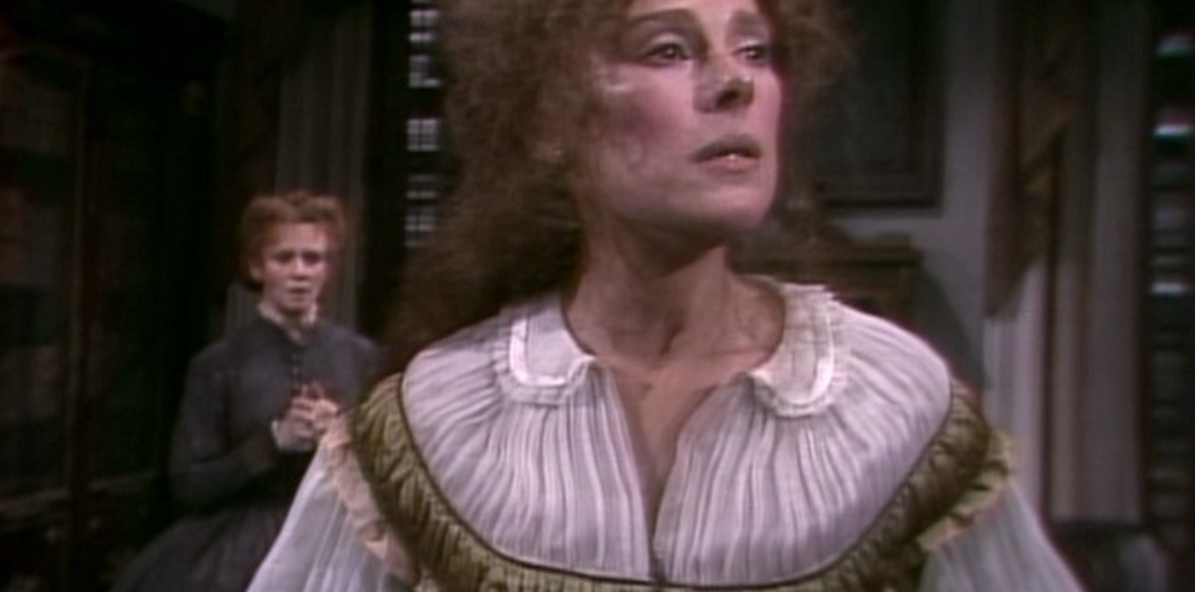
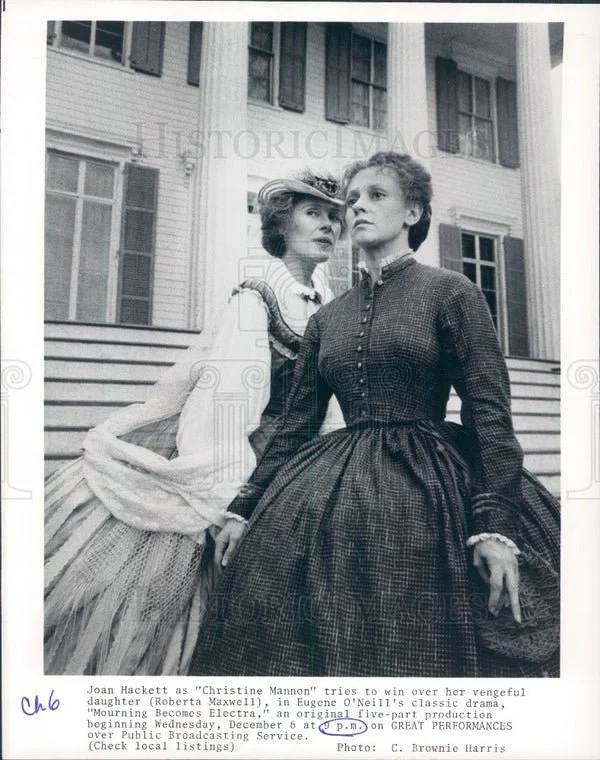
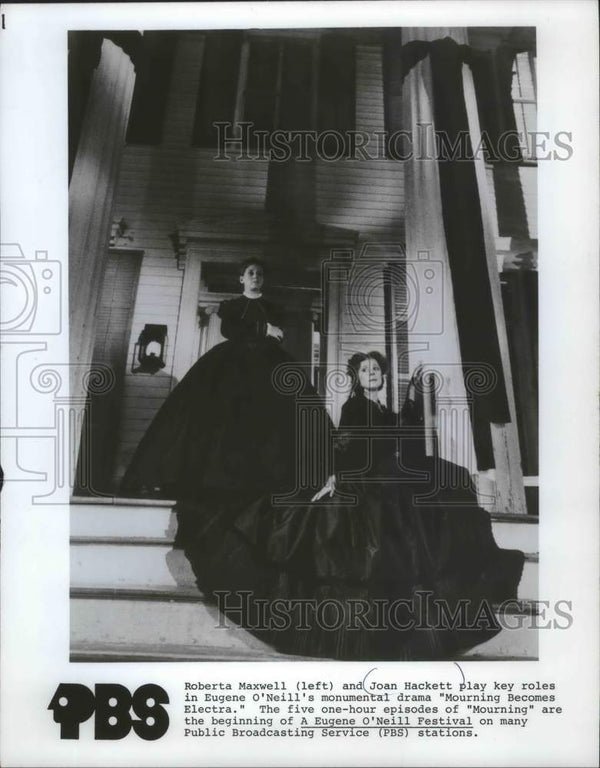
Rotten children!
I suppose one must blame the rotten parents!
But, oh the delicacy that Joan Hackett unspools in her portrayal of Mother Mannon! She gave such depth of pain and quiet suffering. You could feel when Christine felt out-of-control. I was rooting for her.
One murder would have actually been great for the Mannons. A good foundation for everyone to grow from.
But rotten children!
10. Assignment to Kill (1968)




Joan Hackett so cute and charming in this! I love her flippy hair and slacks and ties. I love her eye rolling and quipping. Alas, however, she is not the lead of the film, so we do not get to spend every minute of screentime with her present. It would have been a better film if that was the case. When her character departs the film, so does all my interest. This is a really fun role to see her in, and I will pretend she left that boring man and safely continued her quipping in slacks and ties for the rest of her days.
11. Will Penny (1967)
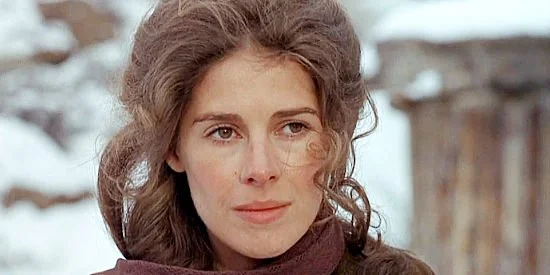
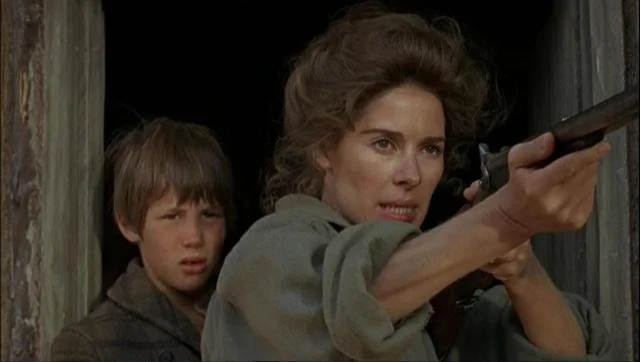
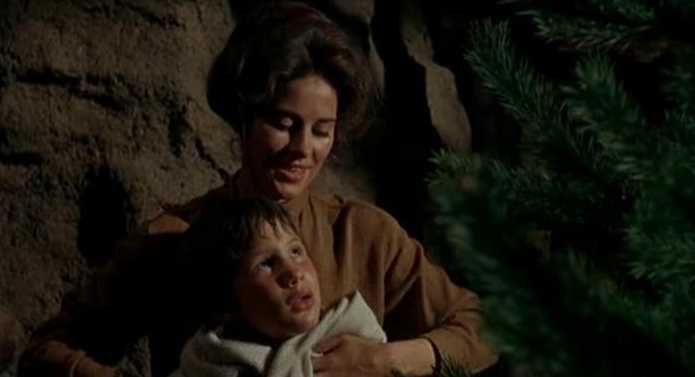
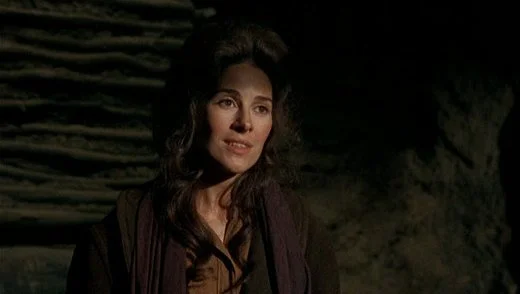
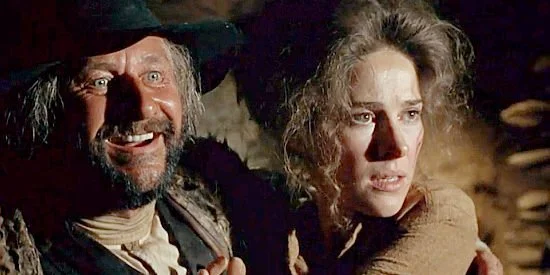
The final Hackett in my year of Joan Hackett, viewed on December 31st. It was an apt final film as it contains so many elements of Hackett Greatness. She is warm, tender, outspoken. She has great hair. She brings out the best in the child performer playing her son. She is so very loveable.
Here, she is even manages to humanize Charlton Heston, which was shocking to me personally. She also shifts with ease to blend with the chaos when Donald Pleasence and sons (Bruce Dern!!!) descend upon the film.
12. Only When I Laugh (1981)
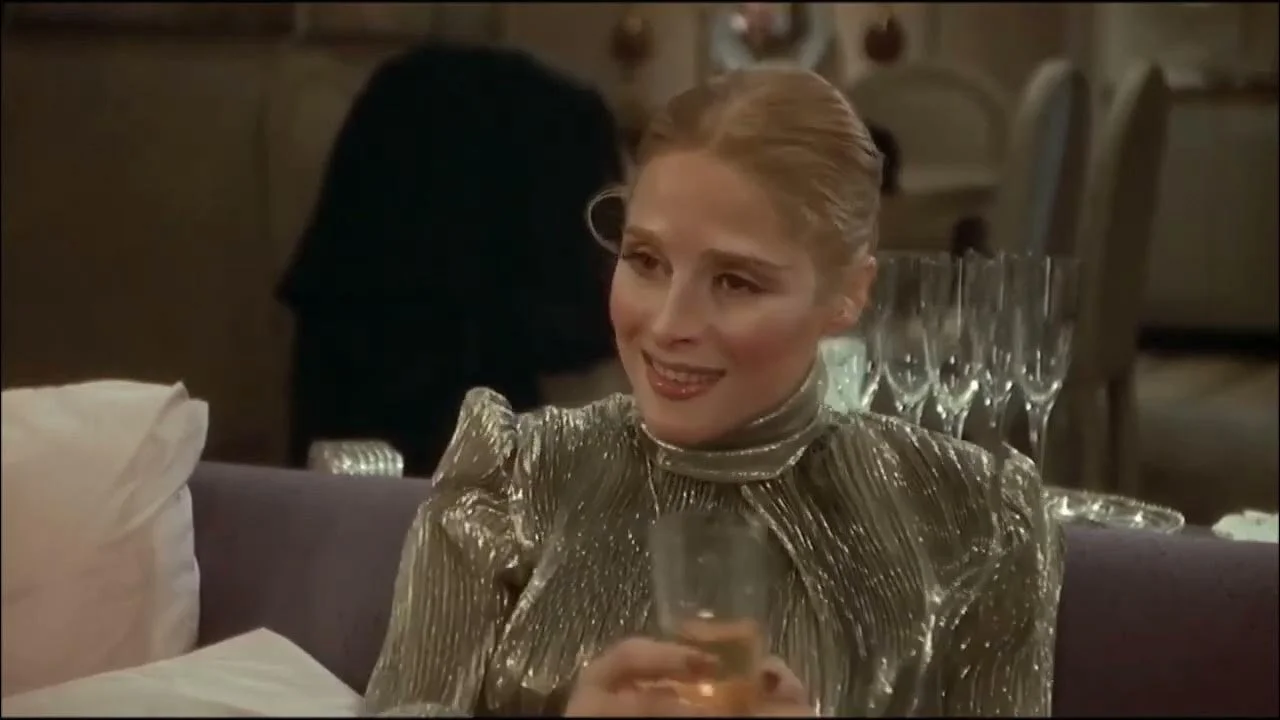
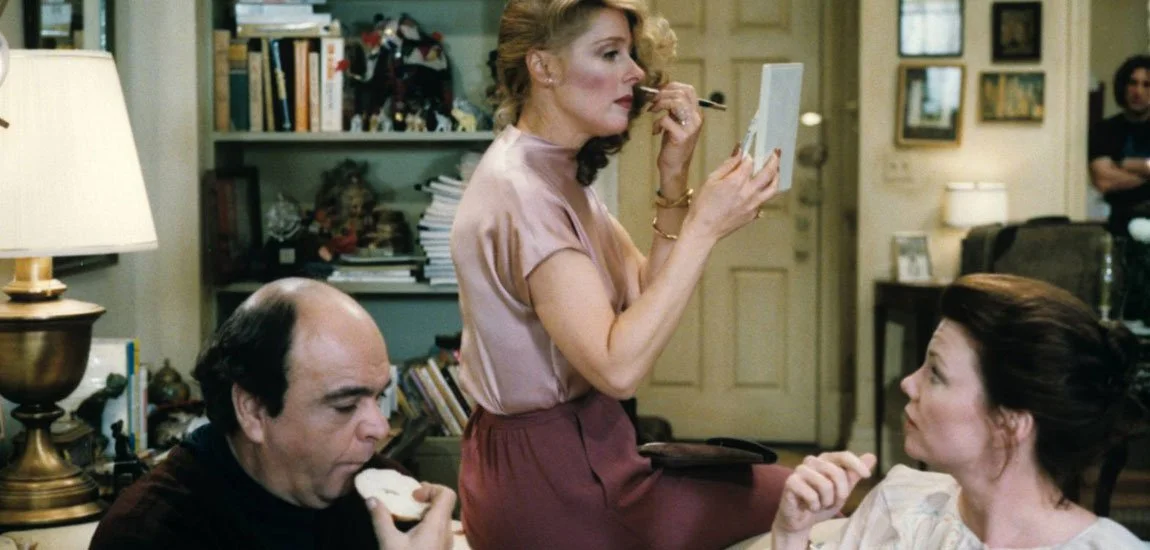
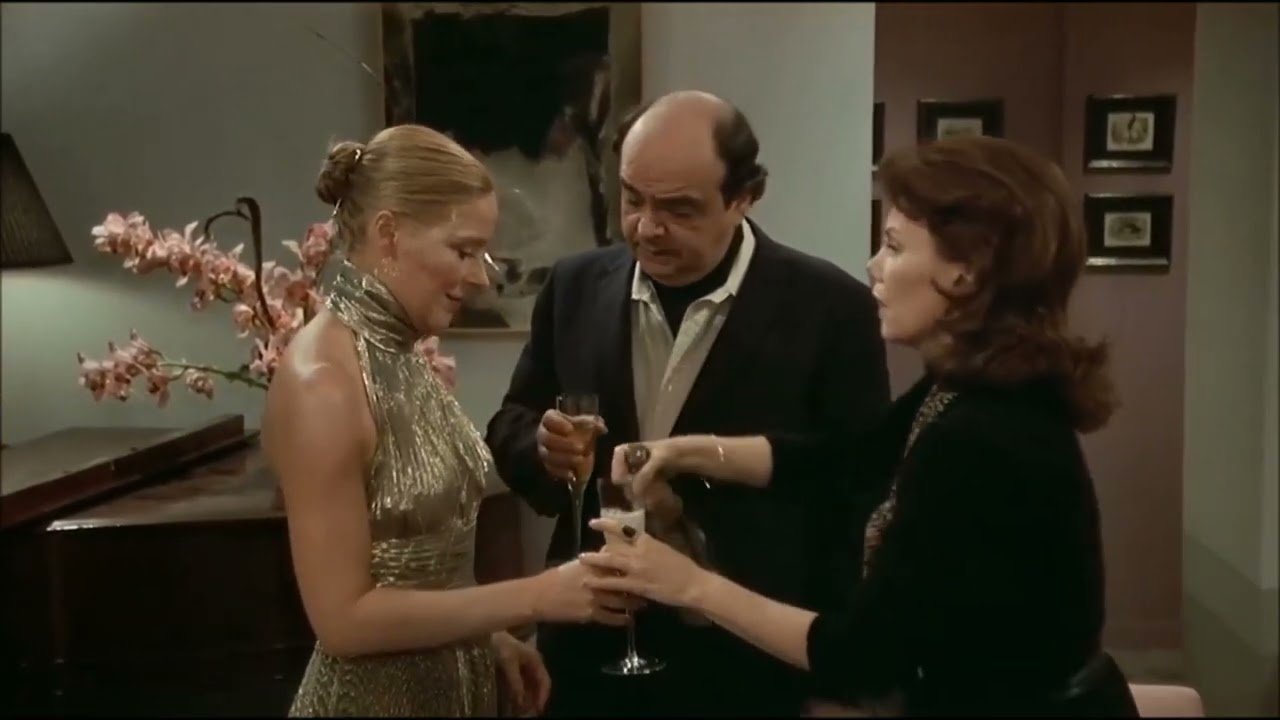
I am simple and I love watching charismatic actresses spout Neil Simon dialogue. Joan Hackett's only Oscar nomination. She should have won. She really is playing a perfectly distilled version of a Joan Hackett character. She’s strong and falling apart at the same time, and so wonderfully loveable.
13. How Awful About Alan (1970)






It would have been entirely easy for this film to have cast Julie Harris and Anthony Perkins as sensitive, awkward freak siblings and called it a day (I would have still watched that film) without bothering to cast anybody good in the role of the patient and supportive fiancé. Thankfully, they cast Joan Hackett. She's darling here, and does some of her inimitable work managing to imbue goodness with such shape and substance. (A true Pisces, I suppose.)
14. The Possessed (1977)





Don’t ask me any questions, but yes, I would love to go to Joan Hackett's School for Girls! This is the absolute pinnacle of Joan Hackett stressed-out acting—she reaches spontaneous combustion levels of work-based anxiety (whom among us cannot relate). This is a performance that really shows how she can hit every big and small beat so perfectly.
15. The Terminal Man (1974)
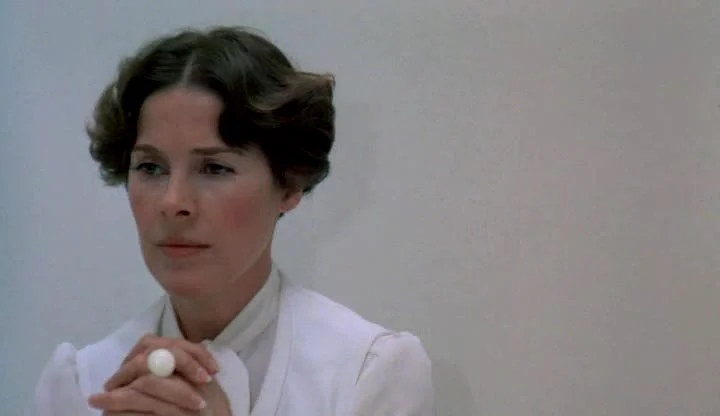
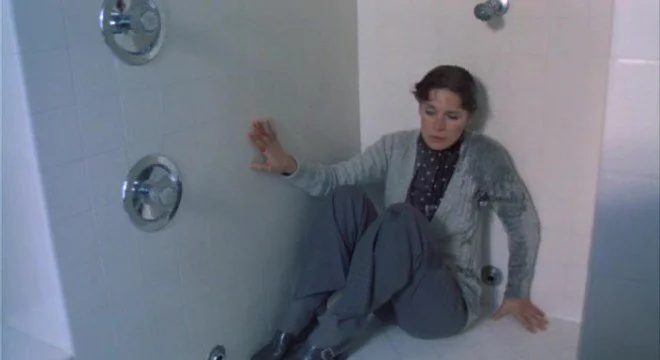
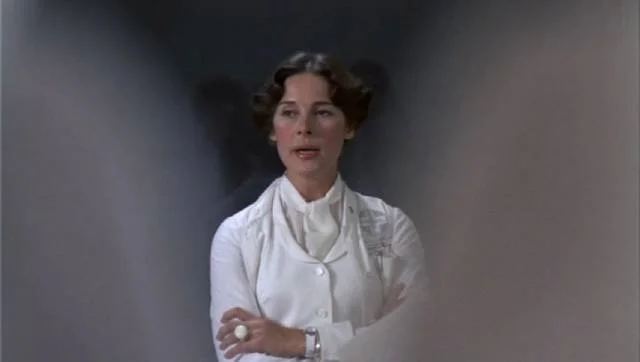
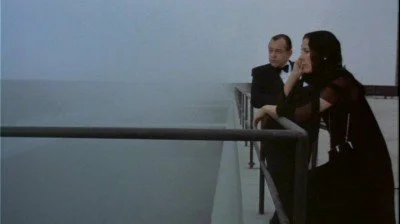
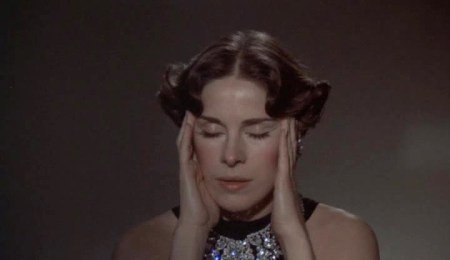
Joan Hackett such a competent presence, and although there were some attempts at weighty philosophizing in this film, I was--shallowly--mostly obsessed with her pristine monochrome outfits and perfectly styled short hair. (Slicked back shower look was truly a dream.)
16. The Treasure of Matecumbe (1976)





A deeply questionable film that cannot be recommended. Joan Hackett does however have poofy hair, a wild accent, a job running scams, and a gentle aunt energy with the child leads.
17. Dead of Night (1977)




TERRIFYING. I am not equipped for this kind of imagery. Oh, she is so good here as a mother who is losing her mind with grief and maybe also whoops summoning demons? Many actors talk about how it can be hard to act opposite children, but Joan Hackett worked with children many times and always has such a perfect energy match to them.
18. Pleasure Cove (1979)






A nothing of a TV movie, but she is so delightful as one-half of a pair of battling exes who show up at the same resort. She is a professor leading along a young dummy of a boyfriend, and generally being her caustic best. She is simply too much fun and I love her big hair and track suit.
19. The Escape Artist (1982)




I find it singularly painful to watch films starring the O'Neal children. Vulnerable children with no advocate; no safe adult. This one has a distinct sadness as Griffin O'Neal's character spends the film trying to cope with the enigma of his father's death and the confusion and grief of that loss. However, Joan Hackett knows how to work with children, and she is really lovely here in one of the final roles. Her interactions with Griffin sing with such a gentleness and genuine sweetness.
20. The Long Summer of George Adams (1982)




A Joan Hackett + James Garner reunion! Their chemistry so exactly right thirteen years after Support Your Local Sheriff! This was one of Hackett's final performances, and her energy is the heartbeat to this story. (I do not forgive Garner’s character for his betrayal though!)
21. Paper Dolls (1982)






A Joan Hackett v. Joan Collins Joan-Off! A small supporting performance from Hackett, but she is fun as a demanding stage-mom of her teen model daughter. She is all business with a slicked back pony.
22. The Long Days of Summer (1980)
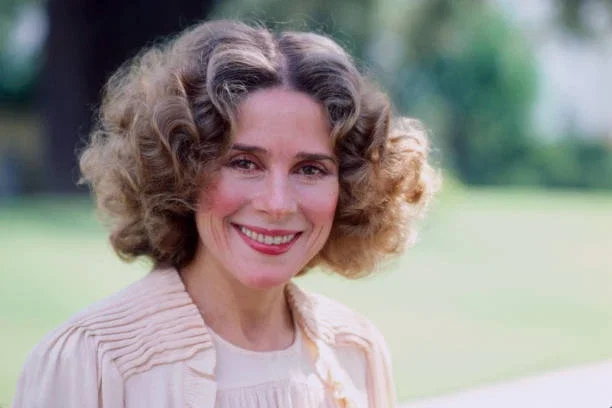
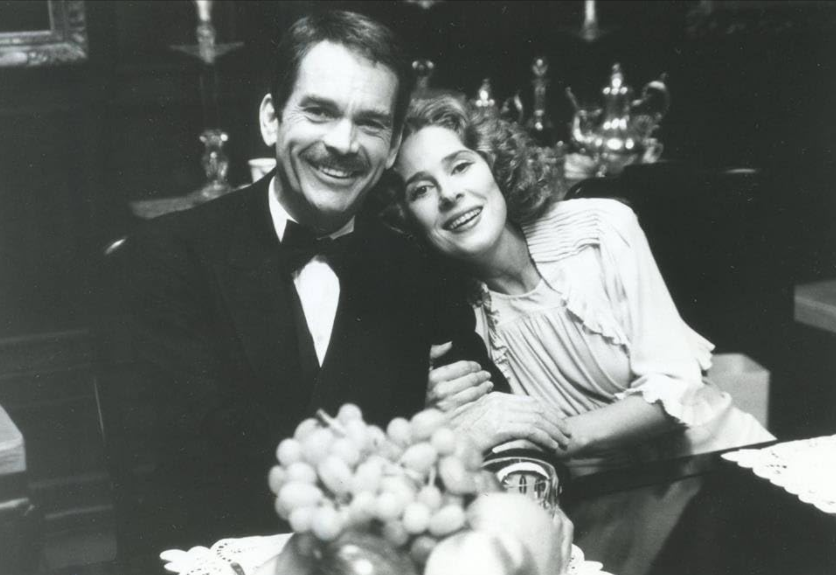
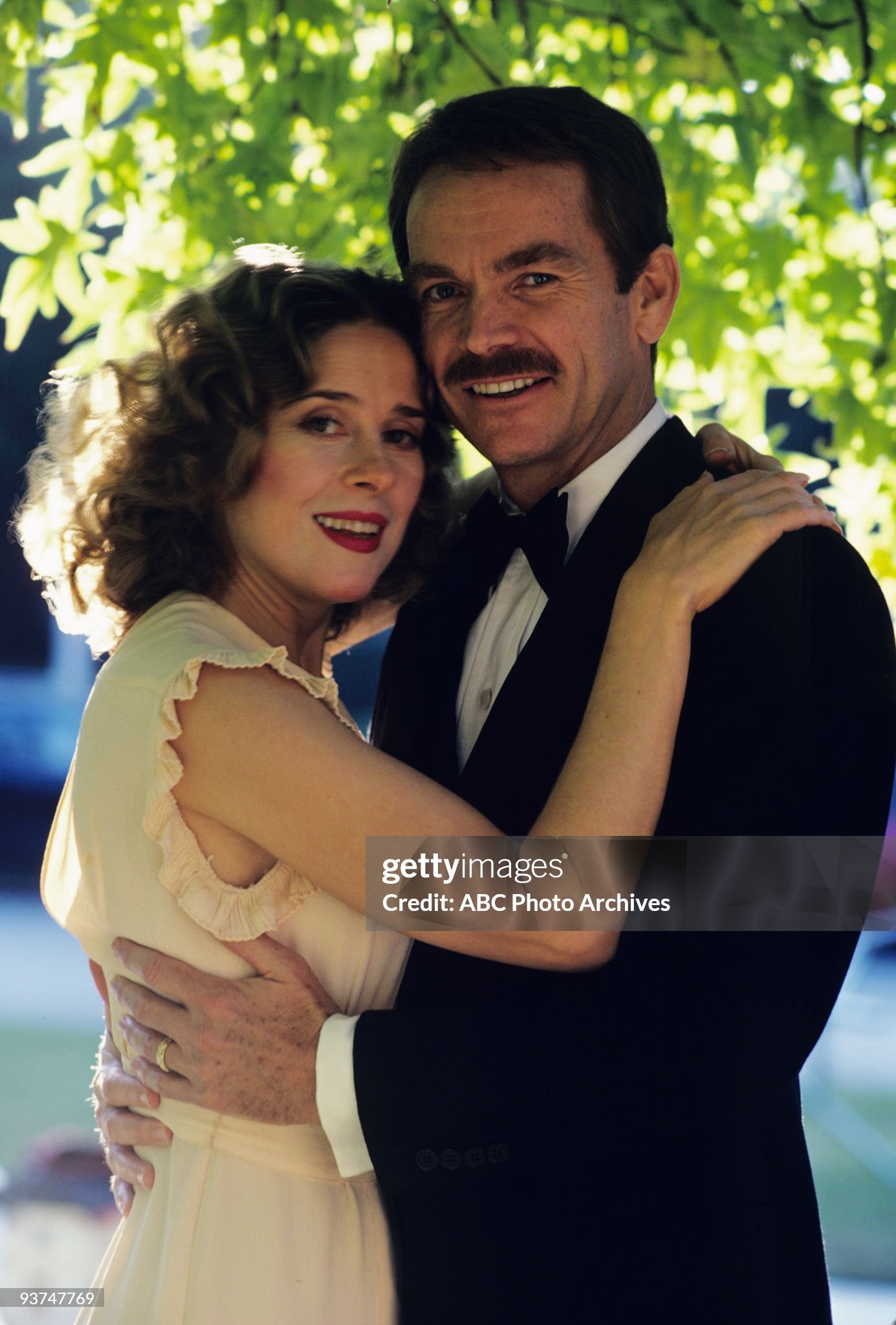
Joan Hackett is strictly playing Mom. But she really is so good, and I have come to realize over this year of Hackett that she works exceptionally well with children!
23. One Trick Pony (1980)


Joan Hackett is a minor character in this film, so she does not have much to do. She does get to appear wise and wry and also looks great as a sleek blonde. She is the smartest one in the movie and I would have loved to watch her movie.
24. The American Woman: Portraits of Courage (1976)



When I say Joan Hackett completism, I mean COMPLETISM. This is a fascinating artifact of 1976. She plays Belva Lockwood, lawyer/politician, for one scene recounting a story about defending a woman in court against her husband. Not a lot to say here, but I do think that Joan Hackett always looks incredible with poofy late 1800s hair and she does have such gravitas. A natural pick for the role.
25. Class of ‘63 (1973)


A TV movie with so many unfulfilled plot-lines, I wondered if the version I saw was edited? Anyway, my only feeling after watching it was: Joan Hackett, a queen! Leave both that short loser and that tall loser behind. Live your life!
26. Mackintosh and T.J. (1975)
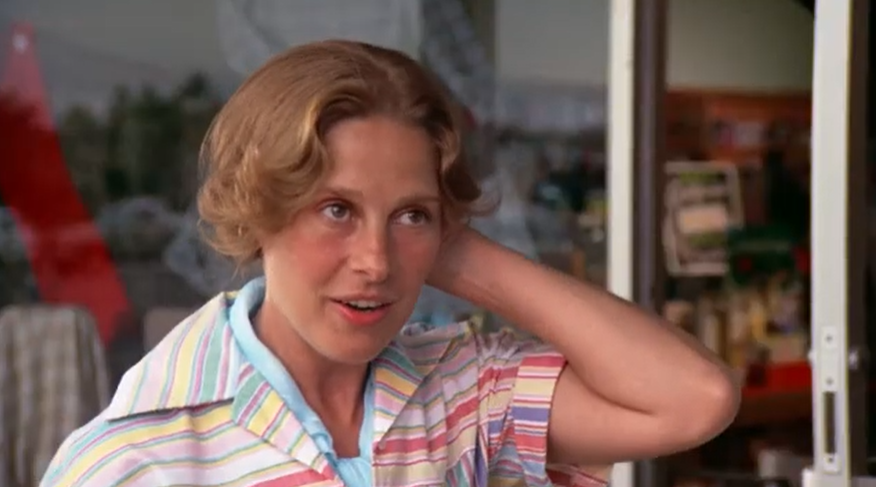
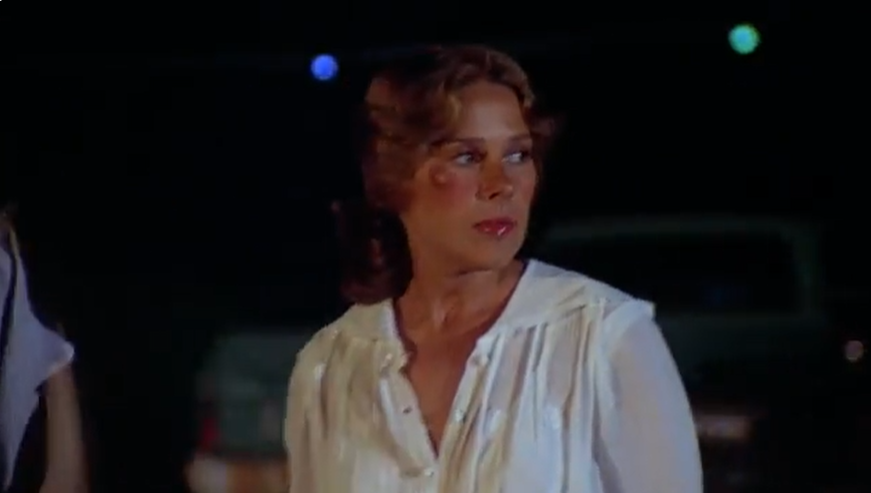
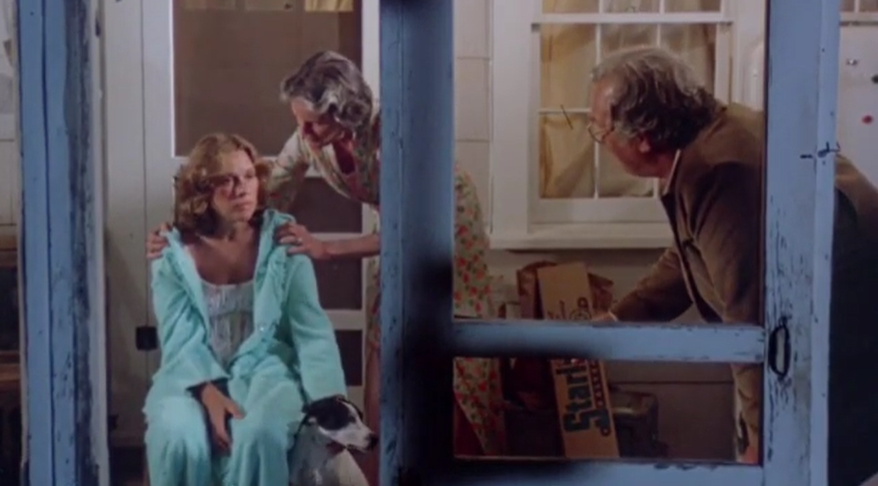
This film is bleak as hell. Joan Hackett typically wonderful in a limited role. She plays vulnerability with such warmth and clarity.
27. Stonestreet: Who Killed the Centerfold Model? (1977)




One thing that simply was not utilized enough in Joan Hackett’s career was casting her as a villain. She really is fun here as a sinister lady with giant glasses doing evil business things from behind a phone. Watch on YouTube here.
28. Flicks (1983)






I believe this was her final released performance. Her parody vignette as a spaceship commander ala Star Trek is somewhat painfully unfunny, but not her. She is just a delight. Imagine the dream of her playing this role in a serious production.
29. Mr. Mike’s Mondo Video (1979)
Watched for Joan Hackett and she has a 5 second voice-only cameo 30 min in. *sigh*
I tapped out after that.
Unranked: Rivals (1972)
Started, but did not finish when I realized it was not a film I wanted to see. My friend Hannah Lynch explains the film in detail here. Films can be made about exploitation of children without exploiting child actors, but that does not appear to be the case with this film.
Joan Hackett in Progress
Lights Out (1972)*
*Turns out this is a lost film. Every mention I can find online from people who have seen it watched its original airing and have never forgotten how scared it made them. Seems like the only way to see it is in-person at Paley Media, so just let me add that to my list.
Playlist of Films Available on YouTube:
-Meg
Steve McQueen, Cinema Goofball
Popular culture remembers Steve McQueen as the King of Cool, a paragon of stoic masculinity, a laconic man of few words and fewer emotions. But, what of the other side of Steve McQueen’s on-screen persona?
Popular culture remembers Steve McQueen as the King of Cool, a paragon of stoic masculinity, a laconic man of few words and fewer emotions. The remembered idea of him is two-dimensional, and–as a marketing scheme–highly successful: his name appears regularly in the lists of the most profitable dead celebrities. He is an image: stern, unflinching, immovable, untouchable. He doesn’t crack under any pressure, just like a Tag Heuer watch. He is “The Absolute Man” according to the vodka brand.
But, what of the other side of Steve McQueen’s on-screen persona? Not the vroom-vroom car chases and cool sunglasses and dialogue-free scripts. Not the decades of co-optive advertising. The other side: the much-maligned (but much-beloved-by-me), entirely uncontained, earnestly unsure total goofball.
I came to Steve McQueen early in life. He is my oldest brother’s favorite. Five years older than me, this brother always had a Steve McQueen movie playing, or a DVD lying about. My understanding of McQueen was formed first by the television series Wanted: Dead or Alive. And yes, he does play a cool loner bounty hunter traveling through the American settler west of the 1870s. But, his Josh Randall is also deeply connected to the people he meets along his travels, always getting involved, solving troubles, and occasionally forced into absolutely wacky shenanigans.
Burned into my memory, is an episode from the final season released in 1961, titled “Baa-Baa.” Josh Randall is sent in search of a lost pet sheep, there’s a singing chorus, montages of him chasing sheep over hills, and pratfall face grimace combinations not seen since the days of Cary Grant flying through Arsenic and Old Lace. That is my enduring image of Steve McQueen: flailing and just a little earnest.
I have written bits and pieces before about Steve McQueen’s depiction of masculinity. It fascinates me. It never seems to me to be the confident, unbreakable idea that endures from his most famous roles, but in actuality rather fractured and unsure, as if he was precariously holding himself together. Often the only outlet of emotions in these performances is violence. Once stardom took hold, there was an increasing unwillingness on-screen to divert from tightly-contained emotions and limited dialogue; almost as if to open himself up at all would be the end of his control.
This is a marked difference from some of the other enduring cool guys of the era, like Sidney Poitier, Toshiro Mifune, or James Garner. Their self-confidence felt entirely real and fully true to themselves in every kind of film or performance. James Garner was good pals with Steve McQueen, but also had this to say in The Garner Files, “He was a movie star, a poser who cultivated the image of a macho man. Steve wasn’t a bad guy; I think he was just insecure. … Deep down, he was just a wild kid. I think he thought of me as an older brother, and I guess I thought of him as a younger brother. A delinquent younger brother.” (Note: This is also what happens when you put two Aries together, I say as an Aries.)
That delinquent younger brother energy is a dominant theme in all of Steve McQueen’s “b-side” films: those films that do not comfortably fit into his steely iconography, and are left out of all the advertising and the cool montages.
Steve McQueen’s best performance comes in one of these films, Love with the Proper Stranger (1963). A romantic drama permeated with sweetness, it is McQueen’s softest role. His co-star Natalie Wood is glorious, confident, and self-assured even while her character is facing extraordinary fears and pressures. McQueen plays his character hesitant and awkward. He is a cool-cat jazz musician who trips over and mumbles his words and hunches and slouches his body. The finale of the film is the ultimate goofball gesture–and stunningly earnest.
Sometimes, Steve McQueen’s ventures into goofball territory are far less earnest. The Reivers (1969) is a film I would charitably describe as YIKES (but what a supporting cast! Rupert Crosse! The great Juano Hernández!). It is also a strange amalgamation of his competing film energies. There is the obsession with a car and emotions processed via violence (particularly directed at women), but there is also slapstick slipping in the mud and very big reaction faces. There is an internal battle for his performance soul warring throughout this film, and violent goofball is not really a comfortable spot to land.
Critical and public appraisal of McQueen’s ventures outside his narrow sphere has never been laudatory. Anything he did that came close to comedy has been thrown out in confusion with a note that it is “really not his thing.” Yet the problem with The Reivers is not the earnest comedy, but the elements of coldness and violence. Steve McQueen’s image sells luxurious watches under the promise that he doesn’t crack under pressure. Ice cold silence sells. Flailing limbs and high-pitched scrambling does not sell vodka--apparently!
Yes, the time has finally come to talk about The Honeymoon Machine (1961). This movie is bonkers, but with that impeccable internal logic that makes 1960s comedies run so smoothly in their own wild realities. It is also peak goofball McQueen. As a scheming sailor with a plan to game the roulette wheel in a Venice casino using a naval computer, he talks extraordinarily fast–often at a high-pitched squeak–and says more words than most of his other films all put together. He stumbles and trips and sways. He is a delight. He hated it.
He walked out of the first preview, and said he would never work with MGM again.
I think it is one of the most endearing McQueen performances. To watch him play a James Garner comedy role without James Garner levels of self-assurance is such a feat of sincere effort. He pulls it off too, because it is all McQueen. He may be playing a zany goofball, but the threat of violence feels ever-possible as he hops about manipulating everyone around him and talking about Nietzsche.
I love Steve McQueen’s on-screen work. 12-year-old me somewhat unconsciously attempted to model my stride on his after watching that long opening shot of him walking down the street in The Cincinnati Kid. His Vin in The Magnificent Seven is one of my favorite characters dear to my heart. His work as Sweater Detective in Bullitt is an aesthetic triumph. Wanted Dead or Alive fills my soul with joy (and I once wrote a piece about its fashion when I was 17). That episode of Alfred Hitchcock Presents where he bet Peter Lorre his finger is a lesson in building tension in 25 minutes (I also love that episode of Alfred Hitchcock Presents where he is a goofball Martian).
But, my understanding of Steve McQueen is not an image used to sell watches and vodka and cars. My Steve McQueen does sometimes crack under pressure. Sometimes, Steve McQueen was bold, violent, cold, angry, and harsh–causing pain that ripples. Sometimes, Steve McQueen was fractured, unsure, flailing, earnest–looking for a safe route to just be. Sincerity even in its tiniest measure is a hard-won human triumph! Long live the sincere goofball cinema of Steve McQueen! (Maybe don’t watch Soldier in the Rain though.)
originally published on The Classic Film Collective on 01/10/2022.


